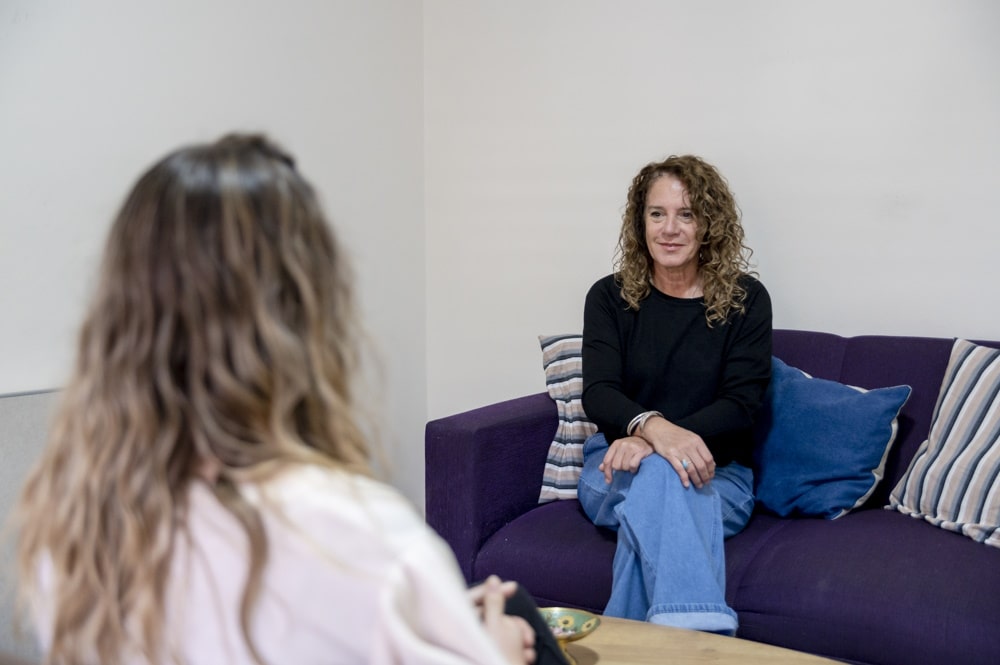At a Glance
Reflective self-awareness in relational integrative therapy ensures the therapist remains present, authentic, and ethically grounded. Balancing personal identity with professional responsibility helps foster trust, inclusivity, and resilience. It helps support clients’ healing while preventing over-identification and therapist burnout.
Reflective Self-Awareness
Therapy is a two-way and continuous process, one involving both me, as your therapist, and you, as my patient. As a therapist, I am constantly learning not just about you, but also about myself, and this reflective self-awareness allows me to better understand my own thoughts and emotions, enabling me to help you better overcome your emotional and psychological challenges.
In my work as a relational integrative therapist, reflective self-awareness is the cornerstone of my practice. It is not a fixed state, but a dynamic, evolving process that shapes the way I engage with my clients and the therapeutic work we do together. This ongoing self-reflection allows me to bring my most authentic self into the room, fostering an environment of curiosity, openness, and compassion.
Book a discovery call with me to understand more about my therapy techniques for relationship issues, anxiety, depression and gender identity.
Reflective Self-Awareness and Therapeutic Relationship are Key To Counselling Success
Discovery begins in connection, within yourself, with your story, and in relationship with another. I see self-awareness as a vital part of this process, ensuring that we explore your experience in a way that respects your unique journey.
Through personal therapy, supervision, client feedback, and the reflections that arise from my own lived experiences, I continue to learn how to stay grounded in the present moment of the therapy process, ensuring that I am not simply reacting to past experiences but responding with the present needs of my clients in mind.
As a relational integrative therapist, I believe the therapeutic relationship is central to the work we do together. Self-awareness techniques that I use in my therapy sessions are collaborative, rooted in mutual curiosity, openness, and mindfulness. We explore your experience at a pace that feels right for you.
I bring warmth, compassion, kindness, and gentle humour to our work, helping to create a space where trust can grow. Integrating different emotional awareness and expression therapy activities allows me to respond flexibly to what you need in the moment, and together we make sense of what feels most alive, uncertain, or in need of care.
How to Develop Emotional Awareness as a Talk Therapist
As a therapist, I recognise that I bring my own emotions, perspectives, and challenges to the work. Practising self-awareness techniques help me stay resilient, present, and better able to build strong therapeutic relationships.
How to develop emotional awareness:
- Practice mindfulness, such as deep breathing
- Maintain a journal
- Label the emotions that I feel and engage in during emotional check-ins
- Seek feedback from peers
The Role of Therapist Self-Awareness In Forming Successful Therapeutic Relationships
Reflective self-awareness is fundamental to maintaining compatibility in the therapeutic relationship. In other words, it ensures that I am fully present and aligned with you, creating a space where trust can deepen. This is essential to my approach, where the relationship between therapist and client is central to the healing process.
By reflecting on my own attachment patterns, values, and vulnerabilities, I gain insights into how they might shape my work. I’ve learned to notice when my mind might lean toward intellectualising a situation and, instead, stay present with my emotions and yours.
Over the years, this practice has become more intuitive, particularly through ongoing personal therapy and professional development groups. These experiences help me trust the immediacy of my responses, which can be a powerful tool in the therapy process. Rather than relying on theory or abstract concepts, immediacy and self-awareness techniques allow me to engage with what is happening in the moment.
I don’t simply bring my technical knowledge to the room; I bring all of who I am. This includes my identities as a queer and neurodivergent individual. These identities have shaped how I approach therapy, fostering a deep sense of empathy and a strong commitment to inclusivity.
Being Aware of Over-Identification With the Patient and Striking The Right Balance
I am also mindful of my past experiences, particularly my time as an Anglican priest, which have enriched my ability to listen and bear witness to the diverse experiences you may bring to therapy. However, I must remain aware of how my identities and experiences might influence the therapeutic relationship, and this is where supervision plays a vital role.
Supervision Prevents the Focus from Shifting
Through supervision and reflective self-awareness, I explore how my experiences may be present in the room, but I also ensure that I don’t over-identify with you. I must remain attuned to your needs, rather than projecting my own.
There is also an important space in therapy for what lies outside of my awareness. Sometimes, unconscious dynamics, such as projections or countertransference, may emerge. This is an area I pay close attention to through ongoing supervision and professional development.
By examining these unconscious elements, I ensure that I do not inadvertently impose my own process on you. This allows me to remain ethically engaged and in line with the BACP principles of fidelity, ensuring the focus remains on you and your needs.
Immediacy Helps with Direct Engagement
Immediacy is another tool I use to explore these unconscious dynamics. By bringing attention to what is happening in the present moment, I can work with the energy in the room as it unfolds. This is a way of engaging directly with what is happening between us, allowing us to explore emotions, projections, or anything that may be influencing the process.
Reflective Self-awareness Helps Prevent Burnout
Reflective self-awareness is not just about the work I do with you, it is also crucial to my own wellbeing. Therapy sessions can be emotionally draining and can often lead to burnout. Maintaining awareness of my emotional and physical states ensures that I can attend to any signs of fatigue, over-identification, or mental exhaustion.
I take steps to adjust my workload, engage in self-care practices, and restore my energy when necessary. This care for my own wellbeing is essential to maintaining ethical resilience and ensuring that I am providing the best service to you. By staying aware of my own needs, I can uphold the BACP principles of non-maleficence, justice, and self-respect.
Channelling My Self-reflective Awareness To Offer You a Holistic Therapy Experience
Ultimately, reflective self-awareness, congruence, and immediacy are what allow me to meet each client with a deep sense of relational depth. Through my ongoing process of self-reflection and professional growth, I remain committed to the ethical principles that guide my work.
These principles ensure that I provide a space of curiosity, compassion, and respect, where you can explore your story and experience in a way that is safe, authentic, and empowering.
If you feel that this approach resonates with you and are considering therapy, I invite you to reach out. Together, we can explore your needs, your story, and how we might work together to navigate the challenges and opportunities that come your way.



